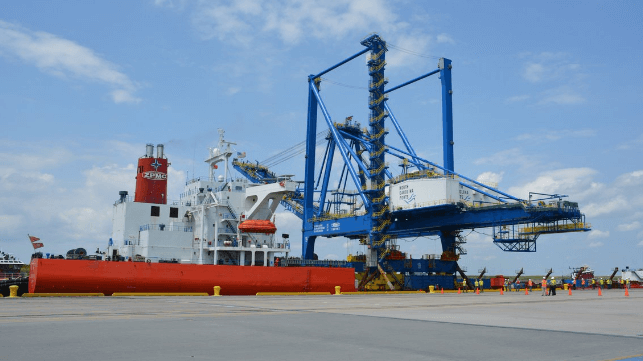Ports Call for U.S. to Delay 25% Tariff on Chinese Manufactured STS Cranes

America’s port community is pushing back on a plan by the Biden Administration to impose a 25 percent tariff on Chinese manufactured port cranes coming into the United States. It is the latest step in a politically charged issue that began over a year ago with accusations that the Chinese cranes were spying on American ports and could be controlled from overseas.
The Biden administration in February launched an initiative to increase port security in response to the accusations of spying and the near total monopoly of the market by Shanghai Zhenhau Heavy Industries (ZPMC) which claims 80 percent of the worldwide market for large container cranes. In the latest step, the U.S. Trade Representative Ambassador Katherine Tai announced plans to raise the tariff on ship-to-shore cranes to 25 percent effective August 1. It was part of a larger widescale range of tariff increases proposed for everything from electric cars to semiconductors, steel, battery and solar equipment, and on to medical gloves and synergies.
The American Association of Port Authorities released its response letter provided during the commentary period for the tariffs emphasizing the potential danger and negative financial impact since there are no domestic alternatives available. They highlight that despite the administration’s efforts to reshore crane manufacturing it will be years before a competitor will be available.
Cary Davis, AAPA’s president and CEO asserts the tariff “will not meet its stated objective.” The association points to the potential for negative outcomes highlighting the harm to port efficiency and capacity, strained supply chains, increased consumer prices, and a weakened U.S. economy.
At least seven U.S. ports they said currently have 35 STS cranes on order from Chinese manufacturers. All these orders were signed before the tariff was announced. AAPA calculates that the tariff will cost the ports an additional $131 million in new and unexpected costs. AAPA is collecting data on anticipated future purchases and reports it has already learned of plans to buy at least 61 additional STS cranes.

that matters most
Get the latest maritime news delivered to your inbox daily.
AAPA is calling on the U.S. Trade Representative to delay the implementation of the increased tariff at least until a domestic manufacturer is able to provide an alternative. They warn ports could be forced to cut back on their investments if they have to pay the tariff.
To aid with the development of the industry, AAPA reports it launched a survey of ports and terminal operators. They are working to compile data on the plans for crane investments over the next five and 10 years. The data they said will help manufacturers to determine the opportunities in the market.
